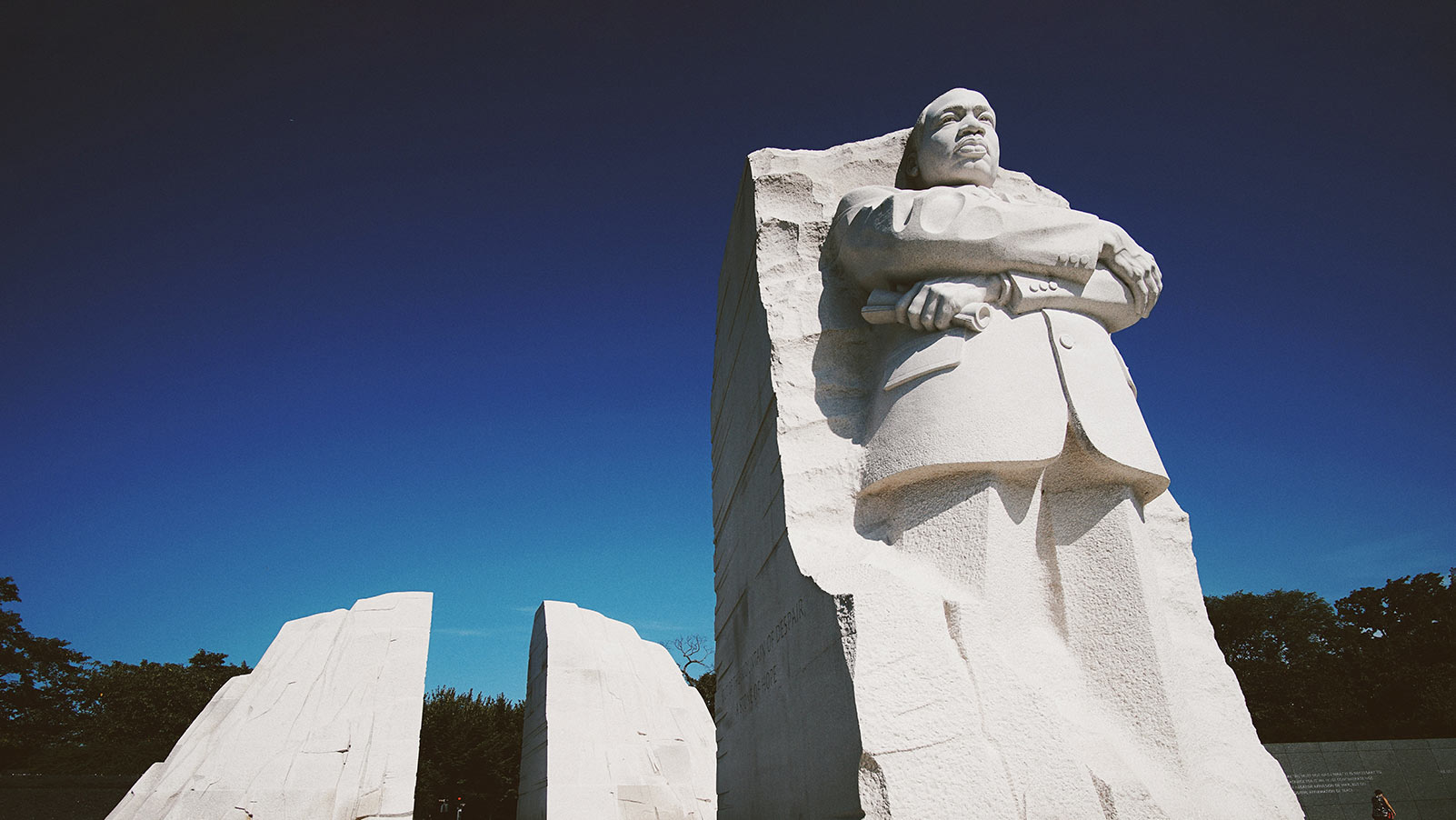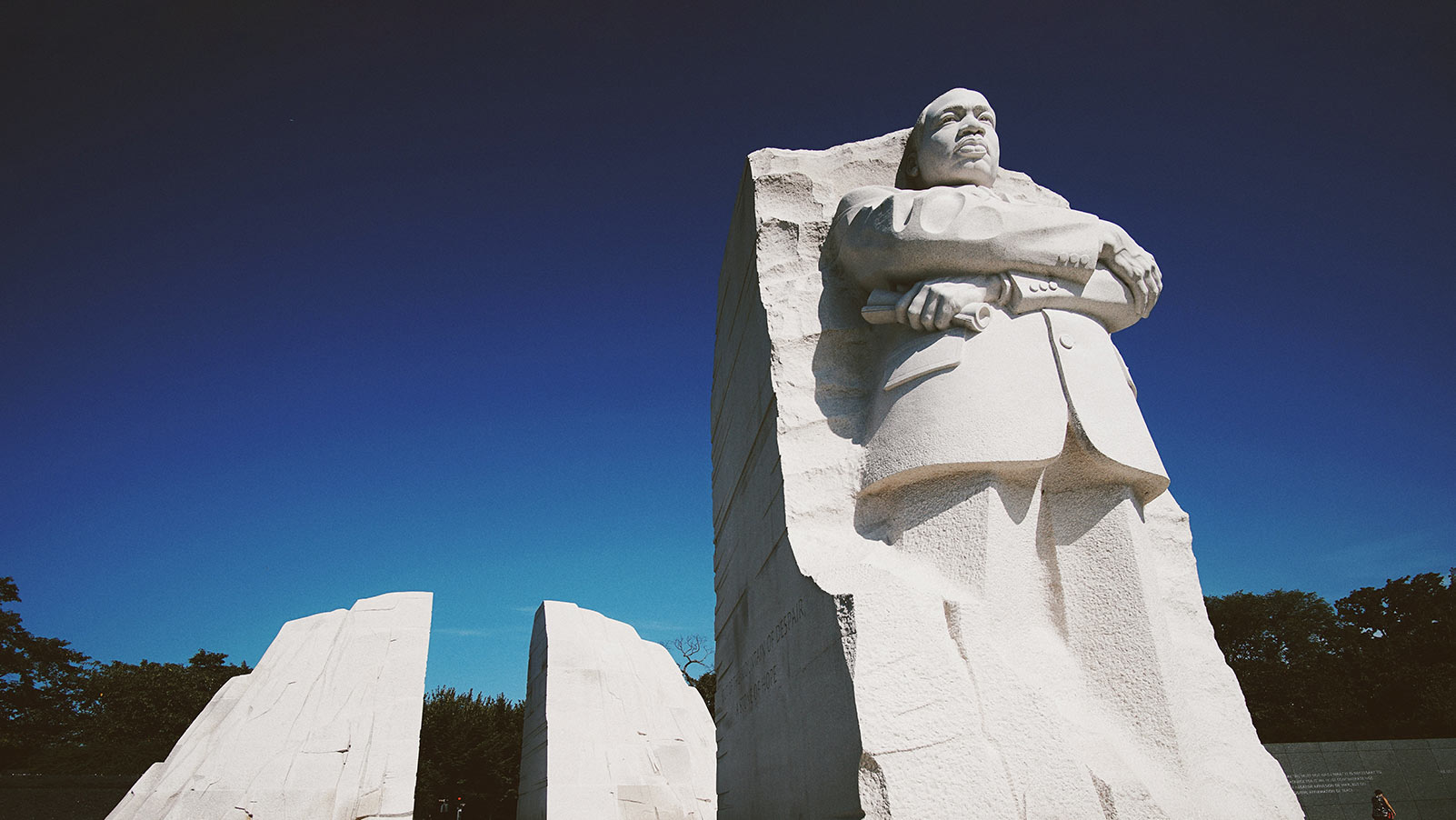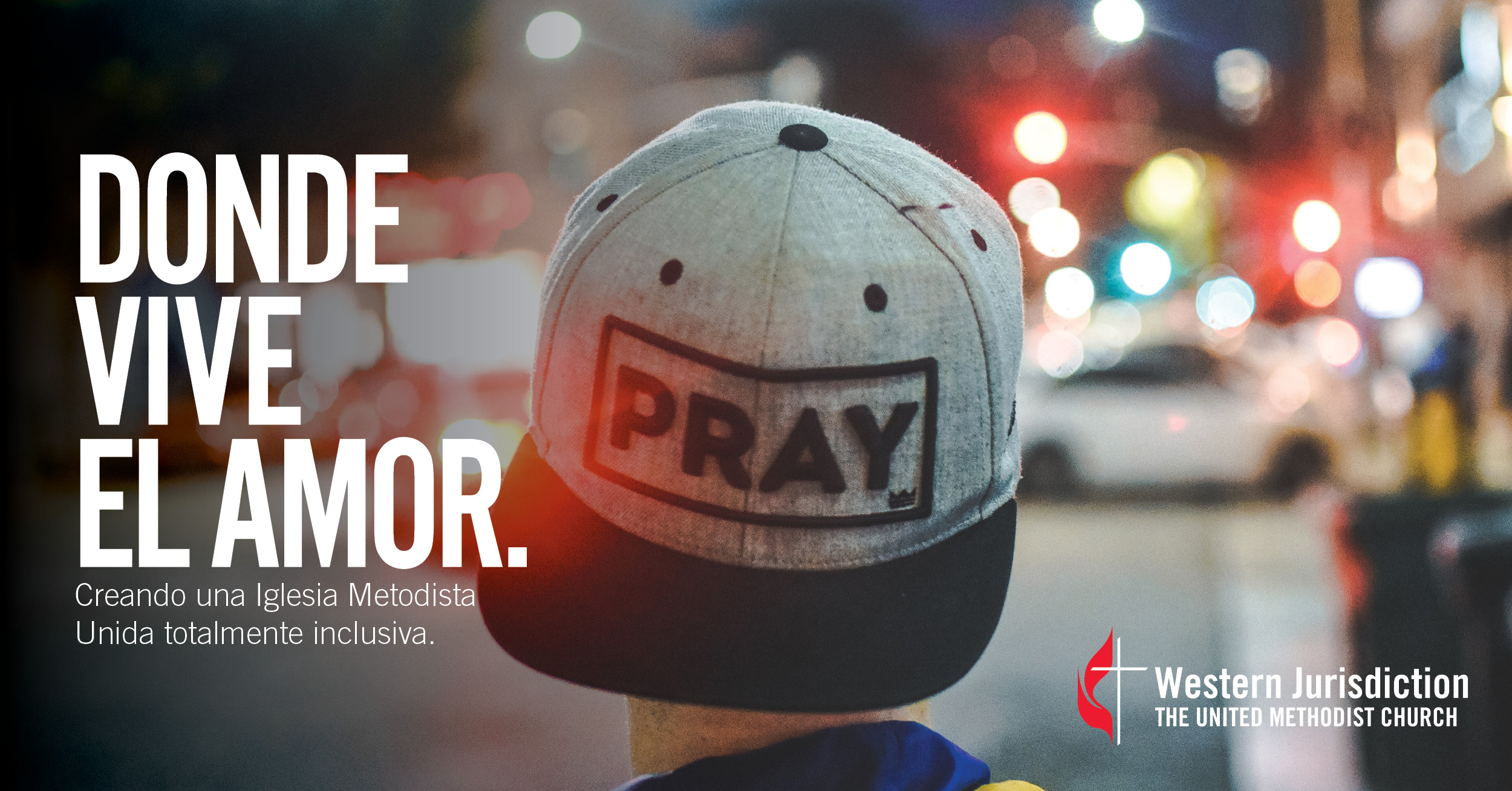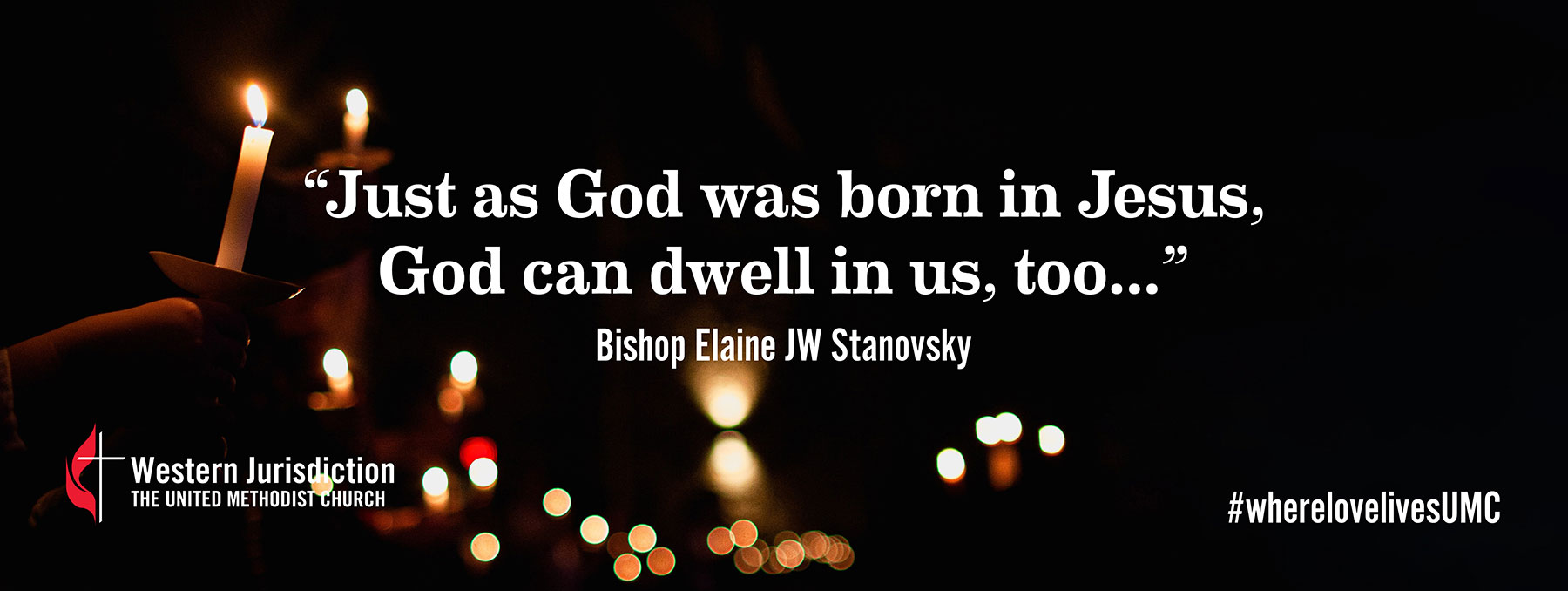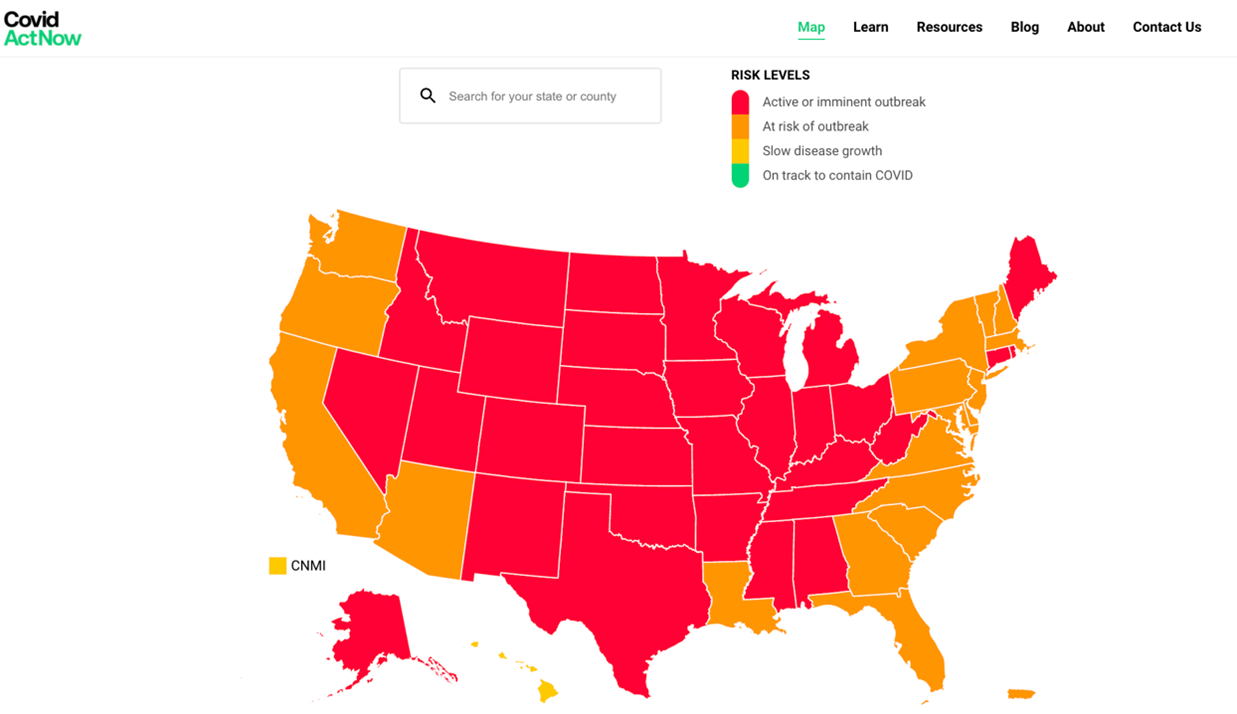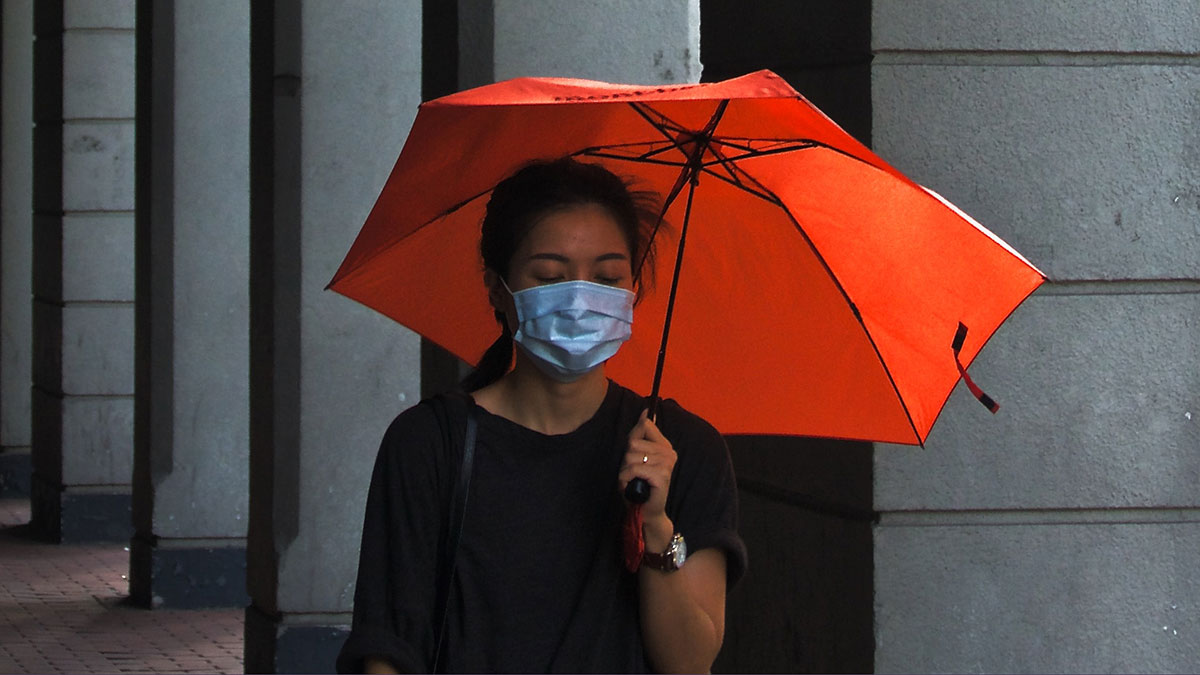La Iglesia como una comunidad amada
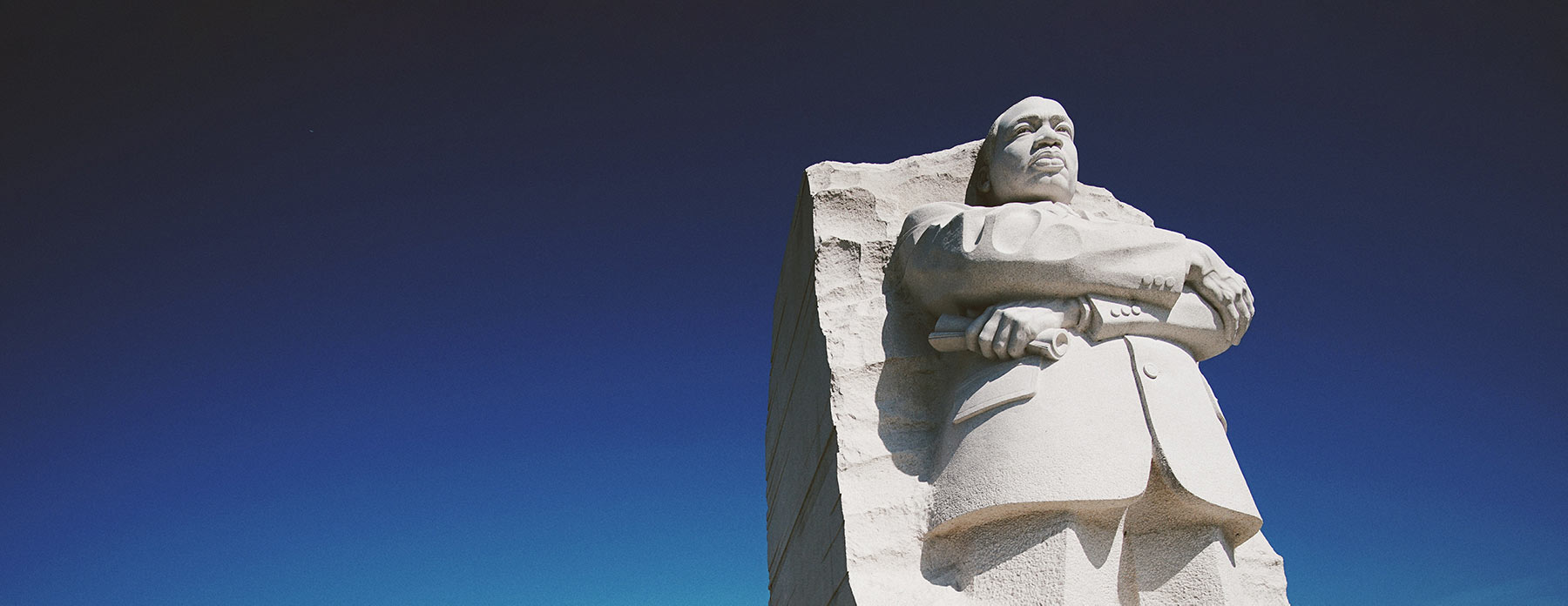
La Iglesia como una comunidad amada
Carta pastoral de la obispa Elaine JW Stanovsky • Enero de 2021
A la mayoría de los Metodistas Unidos blancos en el área metropolitana del noroeste, con una invitación a otros para que escuchen y se unan a esta conversación.
Pero ahora, gracias a Cristo Jesús, ustedes que antes estaban tan lejos han sido acercados por la sangre de Cristo…. Rompió la barrera del odio que nos dividía…. Así que ahora ya no sois extraños ni extranjeros. Cristo te está construyendo en un lugar donde Dios vive a través del Espíritu.
Amados en Cristo, los he llevado en mi corazón y en mis oraciones en cada momento durante estas temporadas de pandemia, división racial, disturbios cívicos y ataques violentos al Capitolio de los Estados Unidos. Mientras lamentamos la imagen de una bandera de la Confederación ondeando descaradamente en el Capitolio, y nos preparamos para más violencia extremista allí y en las capitales estatales de todo el país, la carga es pesada para las personas de conciencia, que viven en la fe, la esperanza y el amor a través de eventos que nos exigen tanto.
Oro por el presidente saliente, el Sr. Trump, y por el presidente entrante, el Sr. Biden, por los funcionarios gubernamentales electos y designados en cada lugar y sus funciones. Que prevalezca el bien de cada uno y que su pecado sea quitado.
Unas palabras para las personas y pastores de color en la Iglesia Metodista Unida
Unida
Más bien, al hablar la verdad en amor, creceremos en todos los aspectos en Aquel que es la cabeza, es decir, Cristo, de quien todo el cuerpo, estando bien ajustado y unido por la cohesión que las coyunturas proveen, conforme al funcionamiento adecuado de cada miembro, produce el crecimiento del cuerpo para su propia edificación en amor.
Oro por nuestra nación y su gente. Que los valores del respeto, la libertad, la equidad y la justicia marquen el camino a través de nuestra angustia y peligros actuales. Oro por las personas cuyo enojo se ha derramado en violencia, enojo por cosas tanto justas como malas.
Quiero llevar un mensaje esperanzador a la Iglesia. Pero la esperanza de esta temporada solo es visible a través de una extensa neblina. Que caminemos a la luz de la fe, al servicio del amor hasta que la esperanza resurja sin obstáculos.
Mientras celebramos la vida y el liderazgo del reverendo Dr. Martin Luther King, Jr., les traigo un mensaje que sé que será difícil. Tiene sus raíces en mi amor por nuestro Creador, Redentor y Sustentador, y en mi amor por todo el pueblo de Dios.
AHORA ES EL MOMENTO. ESTE ES EL LUGAR. SOMOS EL PUEBLO para anular el privilegio y la supremacía de los blancos en nuestros corazones, nuestras mentes y en nuestras comunidades y para construir una amada comunidad de justicia y equidad racial
AHORA ES EL MOMENTO de desmantelar los sistemas opresivos de racismo institucional, que
- viola la dignidad y santidad de la creación de Dios
- divide nuestras comunidades
- deformar el cuerpo de cristo
- aísla las iglesias locales de sus vecinos y
- silencia el testimonio profético de los cristianos sobre la justicia y equidad de Dios.
El racismo blanco llegó al Nuevo Mundo con Cristóbal Colón en 1492, mucho antes de que los Peregrinos o la Declaración de Independencia elevaran el valor de la libertad. Echó raíces y no se ha erradicado. Está vivo y coleando en Estados Unidos. Ahora, los videos de teléfonos celulares de la violencia policial contra negros desarmados exponen el racismo persistente para que todos lo vean. La raza está en la agenda pública de una manera nueva y urgente. Las protestas, demandas, testimonios personales, documentales y seminarios virtuales han abierto una ventana a lo generalizado que es el racismo en la vida de nuestra nación.
En comparación con las personas de color, los blancos disfrutan de la “buena vida” de manera desproporcionada en casi todos los aspectos: educación, atención médica, salud ambiental, justicia penal, encarcelamiento, derechos de voto, propiedad comercial, empleo, ingresos, vivienda y esperanza de vida, para nombrar algunos. Este es el privilegio que disfrutan los blancos en Estados Unidos. Los patrones de privilegio y pobreza en Estados Unidos están incrustados en instituciones, normas, prácticas y sistemas que no dependen de los prejuicios, el odio o el maltrato individual. Tienen vida propia.
LA IGLESIA ES EL LUGAR … para despertar y enfrentar valientemente el pecado del racismo y crear una comunidad amada.
Dios les da a las personas de fe una visión de seres humanos diversos que viven juntos en una relación correcta entre sí. Pero a lo largo de la historia, la Iglesia cristiana a menudo ha creado y mantenido sistemas de desigualdad racial en Estados Unidos y en todo el mundo. Hoy, la iglesia está llamada a reconocer y desmantelar su propio racismo y unirse a un movimiento de reconocimiento racial y reconciliación en todos los lugares.
Cuando las comunidades donde la iglesia esta situada experimentan cambios especialmente identificados como económicos, étnicos o ambos a la vez, la iglesia local hará un análisis deliberado del cambio en la comunidad, y alterara su programa para enfrentarse a las necesidades y patronos culturales de los nuevos residentes. La Iglesia local hará todo esfuerzo posible por permanecer en el vecindario y desarrollar un ministerio efectivo para los recién llegados, ya sea que pertenezcan a una comunidad cultural, económica o étnica diferente de la de los miembros originales o actuales.
Para el año 2045, los blancos serán una minoría de la población estadounidense. En los estados de Alaska, Idaho, Oregon y Washington, casi todos los pueblos y ciudades se están volviendo rápidamente más diversos desde el punto de vista racial y étnico, pero nuestras Iglesias Metodistas Unidas en la región son predominantemente blancas, de clase media, envejecidas y en declive. En su mayor parte, nuestras iglesias no se están adaptando a la población cambiante al dar la bienvenida o involucrar al creciente número de sus vecinos que provienen de diferentes herencias nacionales, raciales o étnicas.
La Iglesia Metodista Unida proclama el valor de cada persona como hijo único de Dios y se compromete con la sanidad e integridad de todas las personas. La Iglesia Metodista Unida reconoce que el pecado del racismos ha sido destructivo en su unidad a través de la historia. El racismo sigue presentando una penosa división. La Iglesia Metodista unida habrá de confrontar y buscar la eliminación del racismo, tanto en organizaciones como en individuos, en cada fase de la vida y en la sociedad en general. La Iglesia Metodista Unida habrá de colaborar con otras para enfrentar aquello que amenaza la causa de la Justicia social en todas sus formas.
El equipo ejecutivo del Área Metropolitana del Noroeste de la Iglesia Metodista Unida reconoce la inclusión como una práctica esencial de una iglesia vital. Estamos incorporando esta práctica en nuestros propios equipos de liderazgo y agendas. En cada reunión, participamos en la formación de competencias interculturales y aplicamos lo que aprendemos a nuestro equipo y su trabajo. Tenemos la intención de invitar a personas de color al liderazgo pastoral de nuestras iglesias para reconocer e interactuar con la variedad de personas en sus que tenemos en nuestros vecindarios.
El racismo persiste en nuestras iglesias.
El racismo puede existir sin odio racial. En muchos lugares, nuestras iglesias son participantes pasivas en sistemas racistas que hemos heredado y de los que ni siquiera somos conscientes. Si nosotros, la mayoría blanca, simplemente continuamos haciendo lo que siempre hemos hecho – a medida que la comunidad cambia y se vuelve más diversa -, silenciosamente y sin siquiera reconocerlo, perpetuaremos el privilegio y la supremacía de los blancos.
Es por eso que en mi discurso episcopal a la Conferencia Anual en septiembre, le pedí a cada iglesia local que examinara las imágenes en sus edificios, las prioridades en sus presupuestos y las personas que toman decisiones para la iglesia, para ver si una rica variedad de culturas y voces están presentes. Las decisiones son diferentes si se incluyen diferentes perspectivas en la toma de decisiones. En respuesta a esto, los superintendentes de distrito iniciaron conversaciones sobre el racismo en cada iglesia local como parte de su cargo o conferencia de la iglesia.
Lamentablemente, hemos comenzado a notar un patrón de racismo manifiesto dentro de varias congregaciones. Este patrón está presente en las tres conferencias y los cuatro estados. Algunas expresiones incluyen:
- criticando a los pastores por predicar sobre la justicia racial
- negando la autoridad del pastor sobre la adoración
- negando el respeto, la deferencia y la confianza que generalmente se brindan a los pastores
- criticando la gramática o la pronunciación del pastor, especialmente en el caso de un pastor para quien el inglés es un segundo o tercer idioma
- esperando que un pastor de color adopte las normas culturales de la congregación sin curiosidad, preguntas o discusiones
- negándose a incluir una variedad de expresiones culturales dentro de la vida de adoración de la congregación
A veces, las congregaciones incluso se han negado a aceptar a un pastor que he designado, debido a razones de raza abiertamente o, a veces sutilmente.
Al escuchar estas historias y discutirlas dentro de mi gabinete, lamento informar que estas actitudes están presentes, aunque a menudo no son predominantes, en casi todas nuestras iglesias. Cualquier pastor de color que sea designado para una congregación mayoritariamente blanca puede esperar encontrar una resistencia racista abierta o implícita, tanto personal como profesionalmente.
Responsabilidades y deberes de Presbíteros y Pastores Licenciados – Liderar la congregación en la inclusión racial y étnica.
El racismo no tiene lugar en la Iglesia.
La Iglesia es el cuerpo de Cristo. No podemos permitir que el racismo infecte el cuerpo al tolerar estos comportamientos porque son no hospitalarios y peligrosos para el amado de nuestro Salvador. Ninguno de nosotros puede descansar mientras nuestras iglesias participen activa o pasivamente en el pecado del racismo.
En el bautismo cristiano, nos comprometemos a resistir el mal, la injusticia y la opresión en cualquier forma que se presenten. Ya sean llenos de odio o amables y bien intencionados, estos comentarios y actitudes son dañinos y refuerzan el ámbito estrecho, fijo de separación de nuestras congregaciones. Cualquier bien que hagan nuestras iglesias, se ve necesariamente comprometido por la sombra proyectada por las actitudes y hábitos que surgen de los supuestos normativos de la cultura blanca.
Itinerancia abierta significa que los nombramientos [del clero] se hacen sin importar raza, origen étnico, género, color, discapacidad, estado civil o edad.
La iglesia no debe valorar lo familiar, lo tradicional o lo cómodo sobre lo que es correcto, nutritivo, emergente y esperanzador. Dios dice “¡Mira! Estoy haciendo algo nuevo; ahora brota; ¿no lo reconoces? (Isaías 42: 19a. Abrazar a la gente nueva y las cosas que Dios nos envía es una práctica espiritual que da vida a la iglesia y, a través de la iglesia, da vida al mundo.
Tu obispa te cuida con amor.
Mi deber, como su obispa, es supervisar los asuntos espirituales y temporales de la iglesia. Nombro lo que veo y animo a los líderes y congregaciones bajo mi cuidado a crecer en la fe y dar testimonio del reino de Dios. Yo veo que nuestro espíritu no es lo suficientemente fuerte para seguir a Jesús en esta amada comunidad y para reconocer que el nos invita a decir la verdad a un mundo que está inundado de mentiras.
La Iglesia Metodista Unida puede y debe convertirse en un movimiento que está despertando, aprendiendo, creciendo y avanzando hacia la conciencia racial, la competencia intercultural y la comunidad inclusiva.
En fidelidad a nuestros votos bautismales, mi gabinete y yo estamos comprometidos a trabajar con pastores y laicos para reformar nuestras iglesias para reconocer nuestro pecado y emprender un viaje hacia la equidad, la justicia y la inclusión racial. Así como los miembros del gabinete tienen una disciplina mensual de capacitación en competencias interculturales, el gabinete desarrollará un proceso para trabajar con las congregaciones para evaluar y reconocer actitudes y comportamientos que dan preferencia a la cultura blanca dentro de la iglesia, y tomar medidas para ser más conscientes y competentes en las relaciones interculturales y raciales.
Los nombramientos interraciales y transculturales se realizan como una respuesta creativa al aumento de la diversidad racial y étnica en la iglesia y en su liderazgo. Los nombramientos interraciales y transculturales son nombramientos de clérigos para congregaciones en las que la mayoría de sus miembros son diferentes de los antecedentes culturales raciales / étnicos del propio clérigo.
El objetivo del gabinete es ayudar a cada iglesia a convertirse en un puesto de avanzada del amor inclusivo de Dios en cada lugar y para toda la gente. Detrás de este objetivo, creemos firmemente no permitir que los comentarios y comportamientos racialmente ofensivos o exclusivos dentro de nuestras congregaciones no sean cuestionados ni transformados.
El reverendo Dr. Martin Luther King, Jr. y John Wesley informan nuestro trabajo contra el racismo.
En 1963, Martin Luther King, Jr., escribió una carta en respuesta a ocho líderes religiosos blancos que lo criticaron por liderar manifestaciones de protesta por la segregación racial en Birmingham, Alabama. En la carta, King reflexiona sobre su decepción con los líderes religiosos durante la lucha por los derechos civiles, diciendo:
- He visto iglesias blancas quedarse al margen y simplemente hablar piadosas irrelevancias y santurronas trivialidades….
- Me he encontrado preguntando: ¿Qué tipo de gente adora aquí? ¿Quién es su Dios? ¿Dónde están sus voces?….
- En profunda decepción, he llorado por la laxitud de la iglesia… Sí, veo a la iglesia como el cuerpo de Cristo. Pero, ¡oh! Cómo hemos manchado y marcado ese cuerpo a través del abandono social y el miedo a ser inconformistas.
Casi 60 años después, el rostro del racismo ha cambiado, pero la iglesia no es menos laxa hoy que en 1963. Debemos viajar juntos de ser “casi cristianos”, como describe John Wesley en su famoso sermón, a convertirnos en ” totalmente cristiano ”, viviendo de maneras que no solo evitan el pecado, sino que cultivan y promueven la virtud y la justicia.
En las próximas semanas, invitaré al clero a una conversación sobre cómo podemos caminar juntos en el camino hacia la comunidad amada, liberados de la herencia del racismo sistémico y profundo.
Mientras vives en la vorágine de la semana que viene y de las que vendrán, agradezco a Dios por tu fidelidad, a través de tiempos de peligro y duda, y oro para que Dios sostenga la gracia en tu vida, tu familia y tus ministerios. Las malas noticias nunca tienen la última palabra. Sigue escuchando. ¡Hay buenas noticias en camino!

Elaine JW Stanovsky
Obispa Gran Área del Noroeste
Translated and Adapted by: Rev. Cruz Edwin Santos
Director of Hispanic/Latinx Ministries
Un miembro profeso laico de una Iglesia local podrá ser acusado de las siguientes faltas y si es así, pedir un juicio: (a)inmoralidad; (b)crimen; (c)desobediencia al Orden y Disciplina de la Iglesia Metodista Unida; (d)diseminación de doctrinas contrarias a las normas de doctrina establecidas de la Iglesia Metodista Unida; (e)abuso sexual; (f)conducta sexual impropia; (g)maltrato de niños; (h)hostigamiento, incluso pero no limitado a racial y, o sexual;(i)discriminación racial o de genero…
